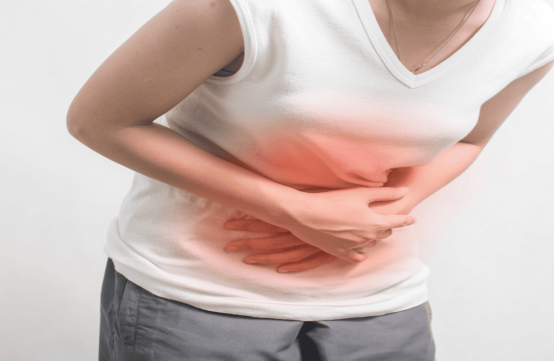Ulcerative colitis (UC) is a chronic inflammatory bowel disease that primarily affects the colon, causing irritation, ulcers, and discomfort in the colon lining. Symptoms often include stomach pain, persistent digestive problems, and fatigue. Unlike other digestive problems that can go away on their own, ulcerative colitis is often a lifelong condition with symptoms that may flare up and subside periodically. Knowing the common signs and symptoms of UC, especially in the early stages, is important to identifying it and working toward effective treatment.

Typical Symptoms of Ulcerative Colitis
Symptoms of ulcerative colitis can range from mild to severe, and some people experience long periods of remission. However, some key symptoms—and even some more subtle, less obvious signs—often occur during the active phase:
- Persistent diarrhea:Diarrhea is often one of the first symptoms of UC. It may contain blood or mucus, which is the result of inflammation and ulcers in the colon. This symptom may be persistent and occur several times a day.
- Abdominal pain and cramping:People with ulcerative colitis often experience abdominal and stomach discomfort, especially in the lower abdomen. The severity of this pain varies, but it usually occurs during times of increased bowel movement.
- Rectal bleeding:Blood in the stool or on the toilet paper after a bowel movement is a telltale symptom. Although it can also indicate other problems, rectal bleeding combined with other symptoms may indicate ulcerative colitis.
- Urgent need to have a bowel movement: Ulcerative colitis can cause a sudden and frequent need to have a bowel movement, which can sometimes be difficult to delay.
- Unintentional weight loss: Weightloss can occur due to chronic inflammation and potential difficulty absorbing nutrients. This can happen gradually and is often unintentional.
- Fatigue:Inflammation in the body can cause fatigue, and people with ulcerative colitis may experience persistent fatigue even when they are well rested. This symptom is often related to blood loss from chronic diarrhea or anemia from nutrient deficiencies.
- Enthesitis and foot pain:Some people with ulcerative colitis (UC) may experience enthesitis, which causes pain and swelling in the tendons and ligaments, especially in the feet and legs. Studies have shown that 6% to 50% of people with inflammatory bowel disease (IBD), including UC, experience this symptom, suggesting a link between UC and foot pain. Enthesitis can increase the discomfort associated with UC, and if foot and leg pain persists, it's cause for concern (Source: MyCrohnsAndColitisTeam).
How to Detect Ulcerative Colitis Early
Detecting UC early can have a significant impact on treating symptoms and preventing complications. Here are some practical steps to detect UC:
- Track symptoms over time: Keeping a symptom diary, recording the frequency and intensity of symptoms, can provide valuable insights when consulting with your doctor. Pay close attention to stool patterns, especially if you notice blood in your stool or persistent abdominal pain.
- Pay attention to family history: Genetics can play a role in UC, so people with a family history of inflammatory bowel disease should pay attention to digestive symptoms.
- See a doctor if symptoms persist:Chronic diarrhea, abdominal pain, or rectal bleeding that doesn't ease within a few weeks warrants a medical evaluation. A gastroenterologist can perform necessary tests, such as a colonoscopy or blood tests, to confirm UC or rule out other conditions.
- Identify dietary and lifestyle triggers:UC isn't caused by diet, but certain foods or stress can make symptoms worse. Monitoring diet and stress levels, as well as symptom journals, can help clarify whether they are associated with symptom flare-ups.
- Consider regular screening if at increased risk: For people with known risk factors, such as family history or age-related susceptibility, regular screening can help detect UC early and implement effective treatment strategies.
Ulcerative colitis may be more common than you think
Although ulcerative colitis is often discussed in younger people, it is also becoming more common in older people. The incidence of ulcerative colitis is approximately 9 to 20 cases per 100,000 people per year, and the prevalence ranges from 156 to 291 cases per 100,000 people (source: National Library of Medicine). Ulcerative colitis also follows a bimodal incidence pattern, with two peak age groups: 15 to 30 years and 50 to 70 years (source: National Library of Medicine). Nearly 25-35% of people with inflammatory bowel disease (IBD), including ulcerative colitis and Crohn's disease, are aged 60 or older, with approximately 15% not diagnosed until later in life (Source: BMC Gastroenterology). These data highlight that ulcerative colitis is more common in older adults than is often realized and underscore the need for greater awareness among people of all ages.
Diploma
Early detection of ulcerative colitis can be life-changing. With prompt diagnosis and effective treatment, people with UC can often live full lives without flare-ups of symptoms. While symptoms such as persistent diarrhea, abdominal pain, and rectal bleeding can mimic other digestive issues, keeping an eye out for these symptoms and seeking medical attention can make a big difference. Awareness of the prevalence of UC, especially in older adults, further emphasizes the importance of early detection. By recognizing the symptoms of UC and taking proactive steps to diagnose and treat it, people can work to minimize the impact of the disease on their daily lives.





